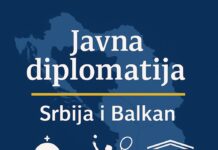Done right, athletic diplomacy can be more effective than political outreach.
North Korean leader Kim Jong-un (left) meets with former NBA star Dennis Rodman in Pyongyang, North Korea.
Photograph from Rodon Sinmun via European Pressphoto Agency
Daniel Stone
Published September 12, 2013
When former NBA player Dennis Rodman returned last week from his second visit to North Korea to meet with leader Kim Jong-un, he announced the next step in his unofficial diplomacy: He would try to take other NBA stars to Pyongyang to train the North Korean basketball team. Then, he said, he would try to have an international basketball tournament in North Korea.
Rodman isn’t an official envoy for the U.S., and his initiative wasn’t endorsed by the State Department. But there are signs that basketball diplomacy could work to ease tensions between the U.S. and the temperamental Kim family that has ruled North Korea since 1948. Traveling with a small entourage, Rodman was able to spend time with Kim Jong-un, building on an unusual friendship they began during Rodman’s first visit in February. He also broke news that the North Korean leader has a baby daughter.
While the State Department declined to comment on Rodman’s overseas activities, National Geographic asked Susan Pittman, who works with the department’s bureau of educational and cultural affairs, about how sports diplomacy works—and when it has been successful.
Can athletic relationships sometimes be more effective than traditional diplomacy?
Sports diplomacy is a powerful force for reaching individuals in every corner of the globe. Sports transcend borders, increase dialogue, and expose foreign participants to American culture. Outside of official channels, sports diplomacy connects people on a personal level through our common interests, values, and passions. We can start conversations and build lasting connections that inspire and inform our government-to-government relationships.
When has it worked?
In 2007, the U.S. supported the travel of 20 American athletes and coaches from USA Wrestling to compete in the Takhti Cup in Bandar Abbas, Iran. This was the first U.S. government-supported exchange with Iran since 1979.
Also, at the height of the Cold War, the U.S. and the U.S.S.R. began a series of track-and-field competitions; the first competition was held in Moscow in 1961 and then, in the following year, over 150,000 Americans attended the competition in Palo Alto, California. The U.S.-U.S.S.R. track-and-field competition continued through 1979, alternating between the countries.
Wasn’t “Ping-Pong diplomacy” one of the most high-profile instances of this, with the Chinese in the 1970s?
Yes, but that wasn’t an official State Department initiative. Henry Kissinger, who was an adviser at the time, supported the idea, but it wasn’t run by our diplomats. The Chinese made the first invitation, but the main events were organized by the International Table Tennis Federation.
Was it seen as a success?
Oh, yes. It was definitely one of the doors that opened as we moved forward with our relations with China.
Are there people or demographic groups that get more focus?
Today, people under the age of 30 are 60 percent of the world’s 7.2 billion people. They are tomorrow’s leaders. Because of this, we prioritize engaging youth as a core strategic mission.
Which sports tend to be the greatest unifiers?
Our programs run the gamut, from the track to the pool, from the basketball court to the soccer pitch, or from the baseball diamond to the wrestling mat. Diversity is so essential to what we strive to accomplish that no one sport stands out above the rest. Sports are a common language that transcend borders and increase dialogue.
Outside of the government, can it sometimes be helpful to have freelance ambassadors?
Here’s what’s important about being an ambassador: The whole idea with sports diplomacy is that you’re working with the sports people and doing exchanges outside of [politics]. That’s not what [Rodman] is doing. We haven’t conferred with him about what he’s doing. It can sometimes do more harm than good.
This interview has been edited and condensed.
http://news.nationalgeographic.com/news/2013/09/130912-north-korea-diplomacy-kim-jong-un-basketball-rodman/













